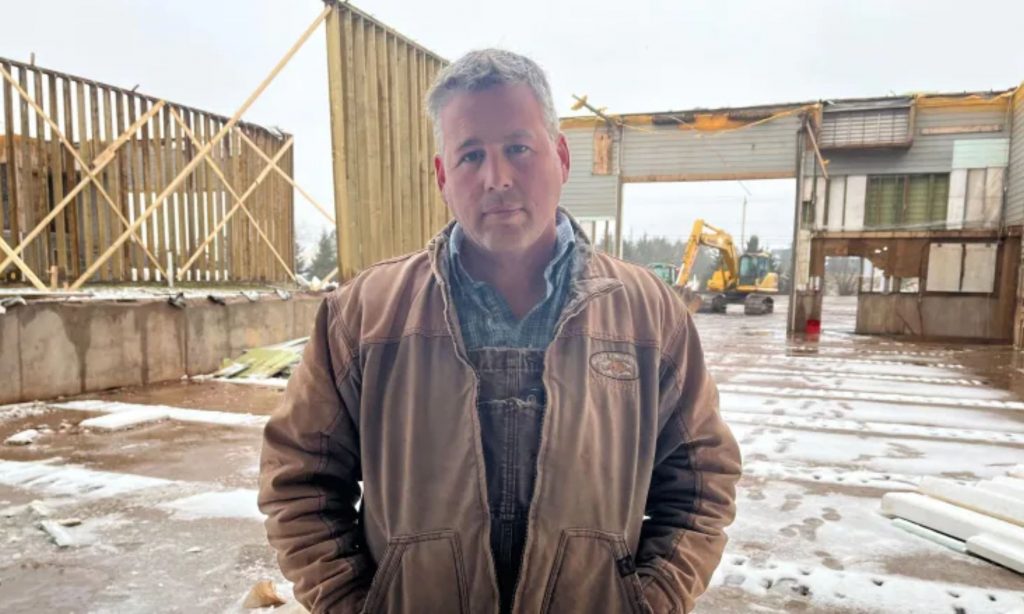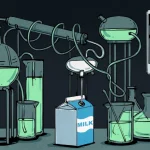
Some farmers on P.E.I. are still cleaning up and rebuilding what they lost more than three months after post-tropical storm Fiona left the Island battered and bruised.
Andrew Smith remembers the destruction all too well. The roof was torn off his potato storage building in New London, the walls had collapsed and debris was strewn across the property.
“Sick, just sick, this was four or five days before harvest, the thought of ‘What are we going to do, where are we going to put our crop?'”
Other farmers in both P.E.I. and Nova Scotia pitched in, helping him find storage space.
Now Smith is focused on the cleanup. He has insurance, but he said it won’t cover all the damages. He said he could be out as much as $1 million.
The weather, at least, has been on his side.

“Normally it could be –20 and a blizzard every second day, so if that was the case we’d be at a standstill. Right now we’re able to carry on, bit by bit, and hopefully, at least, get all of the old stuff torn down and get some protection on the concrete before it gets too cold and then be ready to build when we’re able.”
No milk lost
Gordon MacBeath of Marshfield, chair of the Dairy Farmers of Prince Edward Island, said remarkably, there was no milk lost in the days after Fiona. Every day, there’s about 330,000 litres of milk produced on P.E.I., he said, and all of that was picked up and processed without any losses.
But the cleanup has been “massive,” and farmers are looking for ways to minimize the damage from future storms.
“Maybe dairy farms have to get their lines buried from their transformer to the buildings, so take that variable out of it,” he said.
“There will be small changes like that I think we can make that will be a long-term benefit for everyone.”

Smith plans to rebuild his wooden structures with steel and cement.
But with the planting season only a few months away, he’s facing a new challenge — finding workers to help.
“We’re having a very hard time finding locals that will stand the elements and come out and work with their hands. It’s hard work.”

























